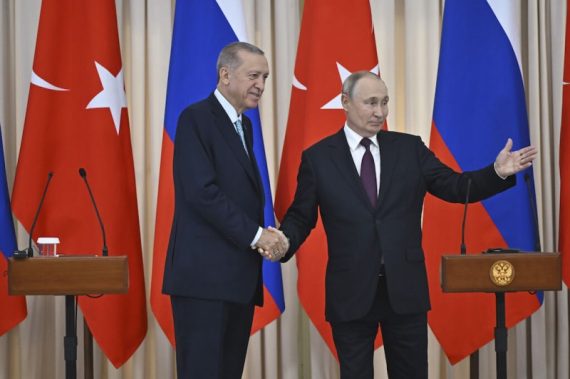A
recent threat by the United States to impose sanctions on financial institutions engaged in business with Russia has led to a slowdown in Turkish-Russian trade, affecting payments for both imported oil and Turkish exports, according to seven sources familiar with the matter.
The U.S. executive order issued in December did not specifically target the energy sector, but it has complicated payments related to Turkish imports of Russian crude and Russian payments for a broader range of Turkish exports. The sanctions aim to reduce Kremlin revenue and disrupt its activities in Ukraine without impeding Russian oil flows to global markets.
While the threat has not disrupted Turkey’s crude supplies significantly, some delays and disruptions in payments have occurred, particularly due to Turkish banks reviewing business relationships and tightening compliance with Russian clients. Russia, a major crude and diesel exporter to Turkey, has faced similar payment problems with other countries, affecting oil supplies to India and complicating those to the United Arab Emirates and China.
Complexity to the trade relationship
Russian President Vladimir Putin and Turkish President Tayyip Erdogan have been working to maintain close ties, with Ankara opposing Western sanctions on Moscow. However, the recent threat of secondary U.S. sanctions on Turkish banks and companies has added complexity to the trade relationship.
The disruption in payments began after the U.S. executive order on December 22, raising concerns among Turkish banks about potential risks associated with doing business with Russia. Turkish exports to Russia in January saw a 39% year-on-year decline, while imports from Russia fell 20.2%. The impact has been more prominent in non-oil trade, with exports of machinery, in particular, coming to a halt.
Turkish banks are said to be taking “extremely meticulous” measures regarding sanctions, with compliance departments closely scrutinizing transactions. The U.S. State Department expressed encouragement for reports that Turkish banks are reviewing and tightening their compliance programs for Russian clients, emphasizing the responsibility of foreign financial institutions to avoid processing transactions benefiting Russia’s military or circumventing U.S. measures.
Recommended
Heightened restrictions
Additionally, two other Turkish banks have reportedly issued 30-day closure notices to Russian corporate clients who had opened accounts following Moscow’s invasion of Ukraine in 2022. The affected businesses include those using Turkey as a transit jurisdiction for settlements and deliveries, along with oil and gas traders, according to Iskander Mirgalimov, an international payments consultant for Russian businesses.
Individual clients are also facing heightened restrictions, including the necessity to maintain a higher account balance, as Turkish banks adjust their practices in line with increased scrutiny and compliance requirements.
These developments mark the latest impact of the U.S. sanctions threat on Turkish-Russian economic relations, adding further complexity to the financial landscape between the two countries. The situation continues to evolve, with potential consequences for businesses and individuals engaged in cross-border transactions.
Source: Reuters





